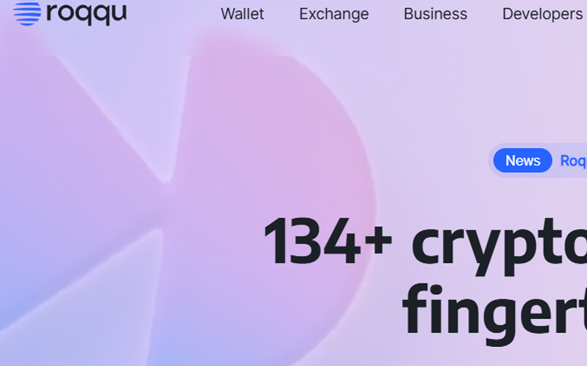Roqqu, Nigerian cryptocurrency trading platform, has announced plans to delist the DASH token from its app, effective today, Wednesday 30 October 2024.
In a statement, published on Roqqu’s X page on Tuesday 29 October 2024, Roqqu stated:
Hello Roqquians
We’d like to inform you about an upcoming change on our platform regarding the $DASH token. After careful evaluation, we’ve decided to delist $DASH from Roqqu, effective October 30th, 2024. This decision aligns with our commitment to uphold rigorous listing standards, ensuring the highest levels of security, functionality, and community support across all assets on our platform.
Roqqu customers also received the announcement via email on 29 October 2024.
Reasons for Delisting
Roqqu’s decision is reportedly driven by its commitment to enhanced listing standards, focusing on security, functionality, and community support.
Speculatively, delisting may also be influenced by factors such as regulatory compliance, low trading volume, or technical compatibility concerns.
Roqqu reaffirmed its dedication to maintaining high standards across all listed assets.
“We continuously evaluate our listings to ensure alignment with our values and commitment to security, functionality, and community support,” the cryptocurrency exchange stated.
With operations in 28 countries across Europe, Roqqu is a digital asset operator licensed in Lithuania by the Financial Investigation Unit (FIU) of Lithuania.
Read also: Everything You Should Know about Privacy Coins
Impact on DASH Holders and Reactions from Industry Stakeholders
DASH holders on Roqqu face potential disruptions if they fail to transfer their assets before the delisting date.
Roqqu advised users to complete any necessary DASH transactions before the delisting date to avoid interruptions. After October 30th, DASH will no longer be tradable or transferable on Roqqu.
Users are recommended to transfer their DASH tokens to a compatible external wallet or exchange that supports the cryptocurrency to maintain its value. Roqqu’s support team is available to assist with the transition.
Particularly considering the very short notice, this sudden delisting announcement may cause inconvenience to its Dash-holding users. Apart from highlighting the importance of diversifying trading platforms and staying vigilant about market changes, Roqqu’s decision also suggests that privacy coins may increasingly suffer similar fate on centralized crypto exchanges. This is due to the security risks often associated with DASH and other privacy coins, including Monero, WorldCoin, ZCash, and Beam and over 100 others listed on CoinMarketCap.
Chioma Onyekelu, Blockchain Forensics Specialist at A&D Forensics, has commended Roqqu for taking “a proactive approach” as a cryptocurrency exchange in Nigeria.
“The decision to delist the DASH token, effective today, aligns with their zero-tolerance risk appetite for privacy coins. Roqqu has made it clear that they will not engage in trading Anonymity Enhanced Cryptocurrencies (AECs), reflecting their commitment to maintaining a secure trading environment, Onyekelu stated.
Speaking about regulations in other jurisdictions regarding privacy coins, Onyekulu pointed out that Roqqu’s stance is “consistent with international regulations, such as the Markets in Crypto-Assets (MiCA) framework, which discourages trading AECs unless user identities can be verified.” She however points out that the regulatory landscape regarding privacy coins varies by jurisdiction.
Although at the time of writing this report, there is no statement from any Nigerian regulator regarding the listing of privacy coins on exchanges operating in the country, Onyekelu believes that “Roqqu’s decision reinforces that the Nigerian market will not permit the trading of such assets on exchanges.” Notably, in June 2024, the acting Director-General of Nigeria’s Securities and Exchange Commission (SEC), Dr. Emomotimi Agama, sought industry players’ cooperation, albeit unofficially, regarding the delisting of the Naira on peer-to-peer (P2P) platforms.
Onyekelu sees this development as a positive one, highlighting Roqqu’s dedication to compliance and its commitment to preventing the facilitation of cryptocurrency-related crimes, including money laundering and terrorist financing, through its platform.
Read also: Introduction to Peer-to-Peer Crypto Trading Platforms: What it Means and How to Use Them
Closing
On one side of the (privacy) coin, privacy coins, while ensuring privacy and confidentiality for legitimate users, bad actors exploit its features to perpetuate illicit transactions. With privacy coins, balancing privacy with compliance can be very tricky. It is for this reason that privacy coins have been banned in a number of countries.
On the other side of the coin, as observed in a 2019 Elliptic blog, is the gradual use of cryptocurrencies by state actors to promote their agenda, exercise influence and power beyond their territorial borders, bypass economic sanctions, or receive aid. “Privacy coins such as monero will be valuable tools for espionage …”
With interests in privacy coins not waning anytime soon in an increasingly privacy-centric world, crypto exchanges and other crypto platforms no doubt face considerable risks and have difficult tasks ahead.
Will other crypto exchanges who are yet to do so also delist privacy coins?
Read also: Roqqu vs Quidax: A Brutally Honest Review
Discover more from Crypto Asset Buyer
Subscribe to get the latest posts sent to your email.





